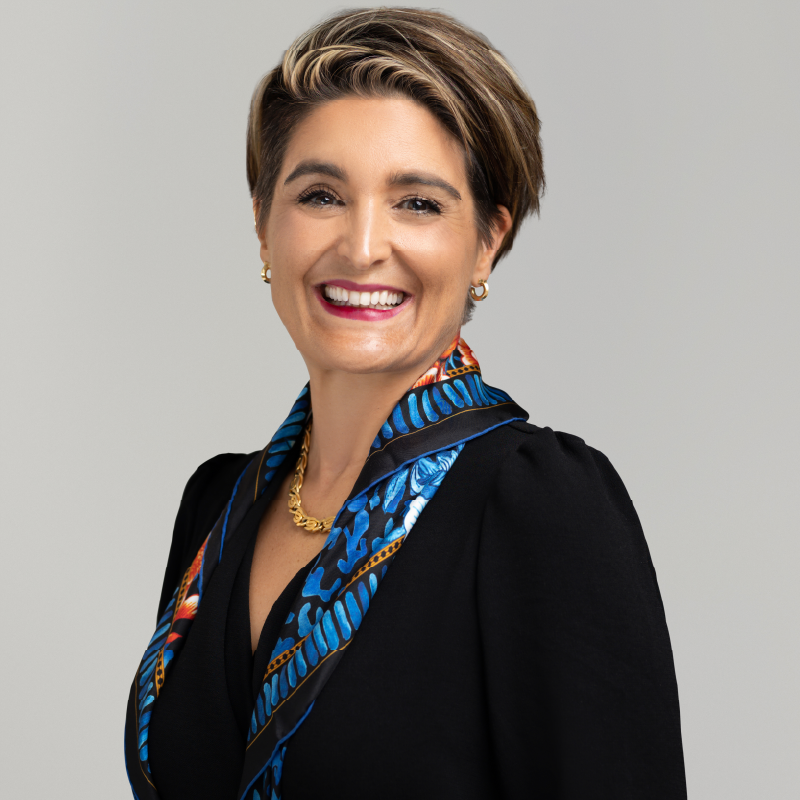Michelle Haynes-Baratz, Ph.D., Managing Associate, is an organizational psychologist who brings two decades of experience researching, developing, and implementing evidence-based interventions to create more equitable and inclusive workplaces. She specializes in leveraging data, both quantitative and qualitative, to understand organizational ecosystems with a specific focus on transforming organizational culture and climate with equity at its core. Her approach is deeply contextual, and she is a firm believer that levers of change exist at multiple levels of analysis, spanning individual, interpersonal, and organizational dimensions. Prior to joining Community Science, Michelle served as the Senior Director of Research and Assessment at NWC, a Diversity, Equity, and Inclusion consulting practice, supporting clients across multiple sectors, including healthcare, education, and finance. She joined the private sector after spending 16 years as a Professor of Psychology at the University of Massachusetts Lowell. During her tenure there, her significant contributions included her role as the Co-Principal Investigator and Social Science Research Director of a National Science Foundation ADVANCE Institutional Transformation award, a 5-year, $3.5 million grant designed to mitigate barriers faced by traditionally under-represented faculty in STEM. This culminated in the creation of UMass Lowell’s first Office for Faculty Equity. She has authored 24 peer-reviewed publications, presented at over 55 international and national conferences, and her work has been featured in popular press avenues such as the Huffington Post, The Atlantic, NPR, and Harvard Business Review. She has taught undergraduate and graduate courses in Workplace Diversity, Research Methods, Industrial/Organizational Psychology, and Conflict and Negotiation. Beyond her professional endeavors, Michelle finds great joy tending to her vegetable garden, preparing meals, and gathering with family and friends to share in the bounty.
Education
Ph.D., Social – Organizational Psychology, New York University
M.A., Industrial/Organizational Psychology, New York University
B.A., Psychology, Wellesley College
Expertise
Transforming Organizational Culture and Climate
Innovative Measurement Tools to Capture Equity-Related Metrics
Strengthen Organizations’ Ability to be Inclusive and Equitable
Strategic Planning
Awards
Teaching Award, Department of Psychology, University of Massachusetts Lowell
Douglas and Katharine Fryer Thesis Fellowship in Psychology, Best dissertation in the area of Social/Organizational Psychology, New York University
Recent Publications
Allen, C.A., Haynes-Baratz, M.C., Lohmeier, J., & Bond, M.A. (in press). Assessing Gender Bias in Higher Education: Development & Preliminary Validation of the Gender Bias in the Academy Index, Journal of the Professoriate.
Bond, M. A & Haynes-Baratz, M.C. (2022). Mobilizing bystanders to address microaggressions in the workplace: The case for a systems‐change approach to Getting A (Collective) GRIP. American Journal of Community Psychology. https://doi.org/10.1002/ajcp.12557
Haynes-Baratz, M. C., Metinyurt, T., Li, Y.L., Gonzales, J., & Bond, M. (2021). Bystander training for faculty: A promising approach to tackling microaggressions. New Ideas in Psychology, 63, https://doi.org/10.1016/j.newideapsych.2021.100882
Metinyurt, T. Haynes-Baratz, M. C., & Bond, M. (2021). A systematic review of interventions to address workplace bias: What we know, what we don’t, and lessons learned. New Ideas in Psychology, 63, https://doi.org/10.1016/j.newideapsych.2021.100879
Haynes-Baratz, M. C., Bond, M. A., Allen, C.A., Li, Y.L., & Metinyurt, T (2021). Challenging gendered microaggressions in the academy: A social ecological analysis of bystander action among faculty. Journal of Diversity in Higher Education. http://dx.doi.org/10.1037/dhe0000315
Bond, M. A. & Haynes-Baratz, M. C. (2018) Collaborating with Community-Based Organizations: Lessons from Partnerships with Community Health Centers. In L. Tropp (Ed.) Making Research Matter: A psychologist’s guide to public engagement. Washington, DC: American Psychological Association, Books

